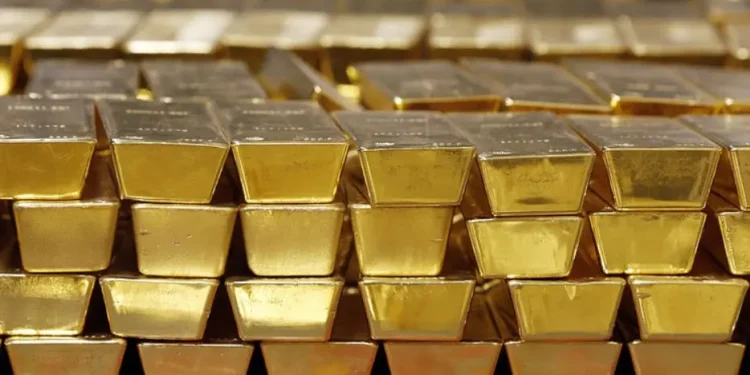BoG Fully Committed to Strategically Leveraging Gold Reserves for Economic Growth – 1st Dep. Governor
First Deputy Governor of the Bank of Ghana (BoG), Dr. Zakari Mumuni, has reaffirmed the central bank’s commitment to the global shift in which commodities, particularly gold, are being strategically leveraged to build economic resilience, unlock liquidity, and drive inclusive growth.
Speaking on the theme “Leveraging Commodities: The Central Bank’s View” at CNVERGE 2025, Africa’s premier trade banking thought-leadership event, Dr. Mumuni observed that the global economy has entered a new era in which commodities are no longer merely exported but utilised as strategic assets.
“The Bank of Ghana is fully committed to this global shift and looks forward to working with various stakeholders to leverage all potential benefits,” he stated.
Closing the Gold Reserves Gap
Citing the country’s gold sector, Dr. Mumuni noted that despite Ghana becoming Africa’s largest gold producer in 2019 and the seventh globally, it did not add to its gold reserves that year, even as central banks worldwide purchased 670 tonnes of gold for reserve diversification. Gold accounted for 56% of Ghana’s total export earnings but contributed little to its reserve portfolio until 2022.
To bridge this gap, the BoG launched the Domestic Gold Purchase Programme (DGPP) in June 2021 after studying similar schemes in the Philippines, Ecuador, South Africa, Turkey, and Mongolia. The initiative aimed to strengthen gold reserves and unlock the broader potential of Ghana’s commodity base.
From DGPP to Gold for Oil
The DGPP framework later underpinned the Gold for Oil (G4O) programme, introduced in 2022 to facilitate the importation of petroleum products through government-to-government arrangements. Dr. Mumuni said the G4O intervention secured petroleum imports at competitive prices, reduced pressure on the foreign exchange market, and stabilised ex-pump fuel prices — thereby moderating inflationary pass-through effects.
Introducing the Ghana Gold Coin
The BoG also expanded its commodity-linked initiatives with the launch of the Ghana Gold Coin (GGC), a high-purity, investment-grade coin positioned as a store of value, inflation hedge, alternative asset class, and monetary policy instrument for managing excess liquidity.
Dr. Mumuni stressed that these measures form part of the central bank’s broader strategy to position Ghana’s commodities as tools for economic transformation, resilience building, and market diversification.
Meanwhile, Ghana’s official gold reserves climbed to a record 34.4 tonnes at the end of July 2025, capping more than two years of sustained monthly gains, according to data from the Bank of Ghana.
The latest figures mark an almost fourfold increase from the 8.78 tonnes held in May 2023, underscoring the central bank’s aggressive accumulation strategy amid efforts to bolster foreign exchange reserves, diversify assets, and reduce exposure to the US dollar.
Monthly data show uninterrupted growth since mid-2023, with particularly sharp rises recorded between August and December 2023, when reserves expanded by nearly 6 tonnes in just four months. The pace moderated in 2024 but remained firmly upward, with incremental additions pushing holdings past 30 tonnes by January 2025.








